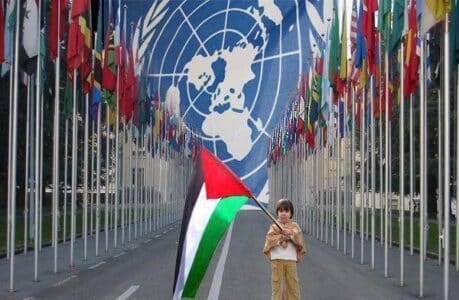As the United Nations General Assembly approaches, the United States has chosen an unexpected weapon: the refusal of visas. Mahmoud Abbas and more than 80 officials from the Palestinian Authority are prohibited access to New York, in the name of “national security”. A symbolic decision, but heavy with meaning, which reduces American diplomacy to an administrative tool transformed into a political lever.
The only exception: diplomats officially accredited to the Palestinian mission to the United Nations, in accordance with the siege agreement which commits the United States to guarantee access to delegations to the United Nations.
Washington justifies this gesture by “national security considerations” and criticizes the AP for carrying out legal procedures against Israel before the International Criminal Court (ICC) and the International Court of Justice (CIJ), while seeking to obtain unilateral recognition from a Palestinian State.
A visa transformed into a diplomatic weapon
What could have appeared a simple consular act here takes the dimension of a strategic tool. The visa becomes a weapon, the last lever of American diplomacy short of options.
Rather than a peace plan, regional mediation or even economic sanctions, Washington chooses to close its counters. A choice that illustrates a diplomacy of exclusion and humiliation, where access to a territory turns into a political blackmail instrument.
Reactions and disputes
Ramallah denounces a decision “contrary to international law” and a violation of the UN siege agreement.
On the United Nations side, the concern is real: to hinder the participation of a delegation amounts to distorting the representativeness of the general assembly.
Critical voices recall that this maneuver does not settle anything on the bottom and only accentuates the feeling of Palestinian isolation when the humanitarian crisis in Gaza reaches an unprecedented level.
The symbol against reality
Behind the announcement effect, the practical scope remains limited: the Palestinian question will be present in New York, carried by the allies and regional supports.
But the gesture reveals a more disturbing trend: the weakening of the American diplomatic arsenal. Failing to be able to propose a credible political solution, Washington folds back on symbolic measures, transforming the weapon of the visa into a derisory shield in the face of a cause brought by the international scene.
Diplomacy reduced to an administrative stamp
The refusal of visas will not prevent the Palestinian debate from occupying the general assembly. But it sends a clear message: in a world out of diplomacy, the great powers come to brandish the most prosaic tools as an instruments of coercion.
By closing the doors rather than opening the discussion, Washington chooses the window weapon, at the risk of further weakening its image as a mediator in the Middle East.








